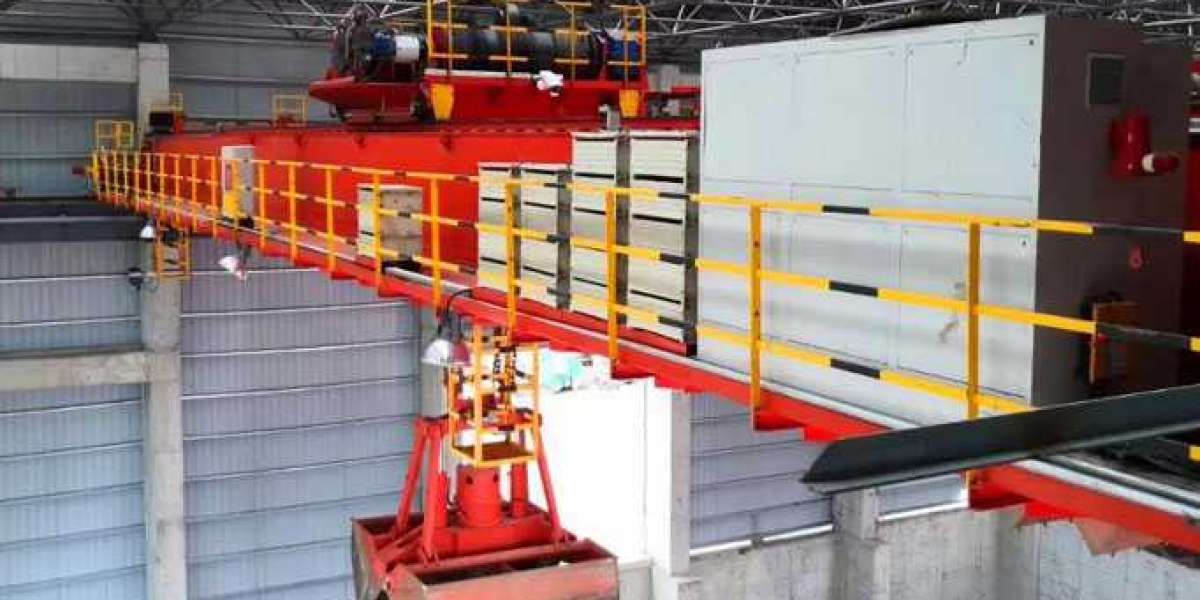Introduction
A coker crane is a type of heavy-duty crane used in the oil refining industry. It is a vital tool for loading and unloading coke drums during the refining process. In this article, we will explore the definition, uses, and safety measures associated with coker cranes.
What is a Coker Crane?
A coker crane is a type of overhead crane that is specifically designed to handle the heavy loads associated with the coke drum operation. It is typically mounted on a steel frame that spans the coker unit, and its purpose is to lift and move the coke drums during the refining process.
Types of Coker Cranes
There are several types of coker cranes available, including:
- Single Girder Top Running Cranes
- Double Girder Top Running Cranes
- Double Girder Under Running Cranes
- Gantry Cranes
Uses of Coker Cranes
Coker cranes are primarily used in the oil refining industry to move and transport coke drums during the refining process. These cranes are designed to handle the heavy loads associated with coke drum operations, which can weigh up to 200 tons.
Safety Measures
The operation of coker cranes requires strict adherence to safety measures to prevent accidents and ensure the safety of personnel. These safety measures include:
- Proper training of operators and maintenance personnel.
- Regular inspection and maintenance of the crane and its components.
- Use of safety devices such as limit switches and overload protection.
- Proper rigging techniques and equipment to prevent load shifting or dropping.
- Proper communication between crane operators and ground personnel.
Maintenance of Coker Cranes
Proper maintenance of coker cranes is essential to ensure their safe and efficient operation. The maintenance of these cranes includes:
- Regular inspection of the crane and its components.
- Lubrication of the crane's moving parts to prevent corrosion and reduce wear and tear.
- Replacement of worn-out parts to prevent malfunctions and accidents.
- Proper alignment of the crane's rails and wheels to ensure smooth movement.
Advantages of Coker Cranes
Coker cranes offer several advantages over other types of cranes, including:
- They are designed to handle heavy loads associated with the coke drum operation.
- They have a long service life due to their sturdy design and construction.
- They can be customized to meet specific requirements of different coker units.
- They offer efficient and reliable operation, which increases productivity.
Disadvantages of Coker Cranes
Coker cranes have a few disadvantages that include:
- They are expensive to purchase and maintain.
- They require specialized training and expertise to operate and maintain.
- They are not suitable for small or medium-sized operations.
Conclusion
In conclusion, coker cranes play a crucial role in the oil refining industry. They are designed to handle the heavy loads associated with the coke drum operation and offer several advantages over other types of cranes. However, their operation requires strict adherence to safety measures to prevent accidents and ensure the safety of personnel. Proper maintenance is also essential to ensure their safe and efficient operation.
FAQs
What is a coke drum? A coke drum is a large cylindrical vessel used in the refining process to convert heavy oils into lighter products.
How much weight can a coker crane lift? A coker crane can lift loads up to 200 tons.
What are the safety measures associated with coker cranes? The safety measures associated with coker cranes include proper training of operators and maintenance personnel, regular inspection and maintenance of the crane and its components, use of safety devices, proper rigging techniques and equipment, and proper communication between crane operators and ground.
What are the types of coker cranes available? The types of coker cranes available include Single Girder Top Running Cranes, Double Girder Top Running Cranes, Double Girder Under Running Cranes, and Gantry Cranes.
What are the advantages of coker cranes? Coker cranes offer several advantages, including their ability to handle heavy loads, long service life, customization options, and efficient and reliable operation.
What are the disadvantages of coker cranes? The disadvantages of coker cranes include their high cost, requirement for specialized training and expertise, and unsuitability for small or medium-sized operations.
Why is proper maintenance essential for coker cranes? Proper maintenance of coker cranes is essential to ensure their safe and efficient operation and to prevent malfunctions and accidents.
What is the role of coker cranes in the oil refining industry? Coker cranes are primarily used in the oil refining industry to move and transport coke drums during the refining process.
What are the safety devices used with coker cranes? The safety devices used with coker cranes include limit switches and overload protection.
How are coker cranes customized to meet specific requirements? Coker cranes can be customized to meet specific requirements by adjusting their capacity, span, and lifting height to suit the needs of the coker unit.
If you work in the oil refining industry or are interested in learning more about heavy-duty cranes, be sure to check out our other articles on related topics. And if you have any questions or comments about coker cranes, feel free to leave them in the comments section below. Thank you for reading!








